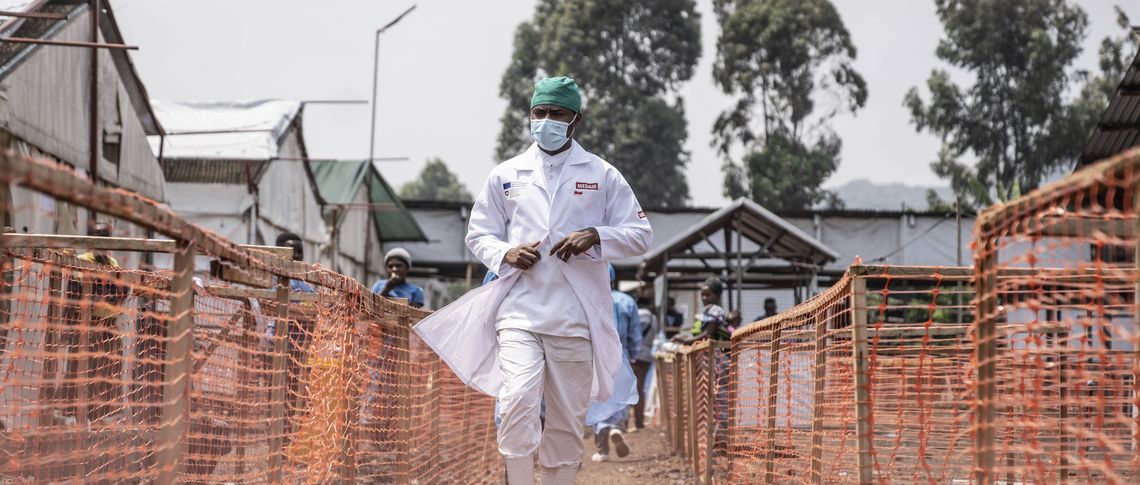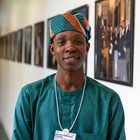Global health is at a crossroads, perhaps more so than ever before. The outbreak of Covid-19 has exposed significant cracks in global health systems, while the climate crisis has further highlighted systemic vulnerabilities. These issues, alongside growing health inequities, shrinking development aid and the rise of populist ideologies in the Global North, underscore the urgent need for world leaders to re-evaluate their response to global health crises. This includes rethinking how healthcare aid is delivered and how lifesaving systems are funded.
At the centre of this reimagining lies the partnership between Europe and Africa. The European Union has recently been reported as seeking ‘to extract more value from the foreign aid it offers poor countries’ — a stance that underscores the urgency for this partnership to transcend mere rhetoric and one-sided control and evolve into genuine collaboration, strategic investment and shared responsibility.
We know for a fact that global health security cannot be achieved in isolation. Europe cannot simply ‘vaccinate’ itself against the health threats, demographic realities and economic changes shaping African countries. On the contrary: the principle of health security lies at the core of the EU’s commitment to building sustainable and trusted global connections. Indeed, the preservation of the EU’s global influence and internal cohesion is tied to its ability to treat Africa as a true partner in securing the future of global health.
Bridging the funding gap
While some people regard the idea that the post-pandemic global health landscape is marred by disparities as just a theory, I experienced it first-hand. While Europeans and Americans were celebrating the rollout of the Covid-19 vaccines, the Nigerian government had none to give. Despite the government claiming that it had some, we had to wait for doses that were meant to be donated to our government.
In Nigeria and many other African countries, health systems are underfunded and lack resources. The development and implementation of healthcare programmes rely heavily on donations from external stakeholders such as the EU. This is despite the fact that Africa bears 25 per cent of the global disease burden. Yet only one per cent of global healthcare investments are made on the continent. With the traditional funding system being changed and reduced, a wider gap is being exposed.
Europe’s investment in the resilience of Africa’s health systems is not a charity. It is a strategic, long-term investment in its own health resilience and economy.
Europeans and their diplomats may easily view this as a mere development issue. However, it is not. It is an issue of security, migration and economy. Health threats in Africa can lead to instabilities that transcend borders. The threat posed by infectious diseases, collapsing healthcare systems and mass human displacement is growing. These challenges, which are often rooted in weakened healthcare infrastructure, also pose serious risks to Europe’s borders and cities.
Therefore, Europe’s investment in the resilience of Africa’s health systems is not a charity. Rather, it is a strategic, long-term investment in Europe’s own health resilience and economy. Strengthening Africa’s public health institutions, manufacturing capacity and workforce training centres is crucial. These investments will also benefit EU countries by reducing global health risks and supporting healthier trade and migration corridors.
Shifting from aid to agency
The old relationship between Europe and Africa, characterised by aid dependency, conditionalities and geopolitical calculation, is increasingly being called into question. Instead, recent conversations led by African leaders and health activists are calling for sovereignty, equity and localisation.
This call was also illustrated by the Africa Centres for Disease Control and Prevention (CDC)’s declaration of a ‘Public Health Emergency of Continental Security’ in response to the spread of Mpox in 2024. Although some African countries reported an increase in cases, the World Health Organization did not announce a ‘Public Health Emergency of International Concern’ until there was a surge in cases in the Global North. According to Dr Ebere Okereke, a public health physician, the declaration represented Africa’s drive towards autonomy within the global health system and was an important step in averting the struggle faced by African countries.
The call for African health sovereignty is also illustrated by its leaders’ recent efforts to strengthen local manufacturing. The African Union has broadened the scope of its operations to encompass all health products by establishing the Platform for Harmonised African Health Products Manufacturing — an upgrade to the Partnership for African Vaccine Manufacturing, which focused solely on local vaccine production partnerships on the continent. The African health system has also recently seen the establishment of the African Vaccine Manufacturing Accelerator, a financing scheme aimed at enhancing local vaccine production, with a commitment of $ 1.2 billion.
The European Union must play a key role in designing and implementing this change. Instead of handling the door to aid, Europe should form and nurture a strategic partnership with Africa. This would mean co-investing in programmes designed by African public health institutions, rather than financing programmes designed for Africa. This would involve the facilitation of technology transfer, fair cooperation in R&D, and making fair trade and patent reforms available. After all, a global health system that fosters solidarity depends on co-creation rather than control.
Reimagining globalisation through health
In terms of its demographics, Africa is a giant on the geopolitical stage, being the youngest continent and leading the way in emerging innovations. As China and Russia take an increasing interest in the continent, its political relevance is growing. Its geostrategic value in global supply chains, especially in the areas of pharmaceuticals and critical minerals, is also increasing. With an ageing population and caught between major global and emerging powers, building strong partnerships with Africa has become essential for Europe’s future prosperity.
A global health system that fosters solidarity depends on co-creation rather than control.
In this regard, the African Union represents a gateway to Global South solidarity. With regionalism and bloc politics increasingly shaping international relations, a strategic EU-AU partnership could help balance political power and pave the way for a fairer global health system.
Developing a partnership between the EU and AU focused on global health would benefit both continents. It could help the EU champion its ideas on climate action, digital health and vaccine equity, among other global debates. The EU would also gain a strong ally — one that will help buffer possible health and economic shocks. In the same vein, Africa would get a fairer seat at the table, more equitable access to health goods and the tools necessary to deliver quality health services to its people.
Overall, there is a need to reimagine globalisation. Rather than being seen as a system of extraction and inequality, it should be rethought as a framework focused on solidarity, a tool for shared innovation and mutual security. Health can be the starting point for testing this new framework.






